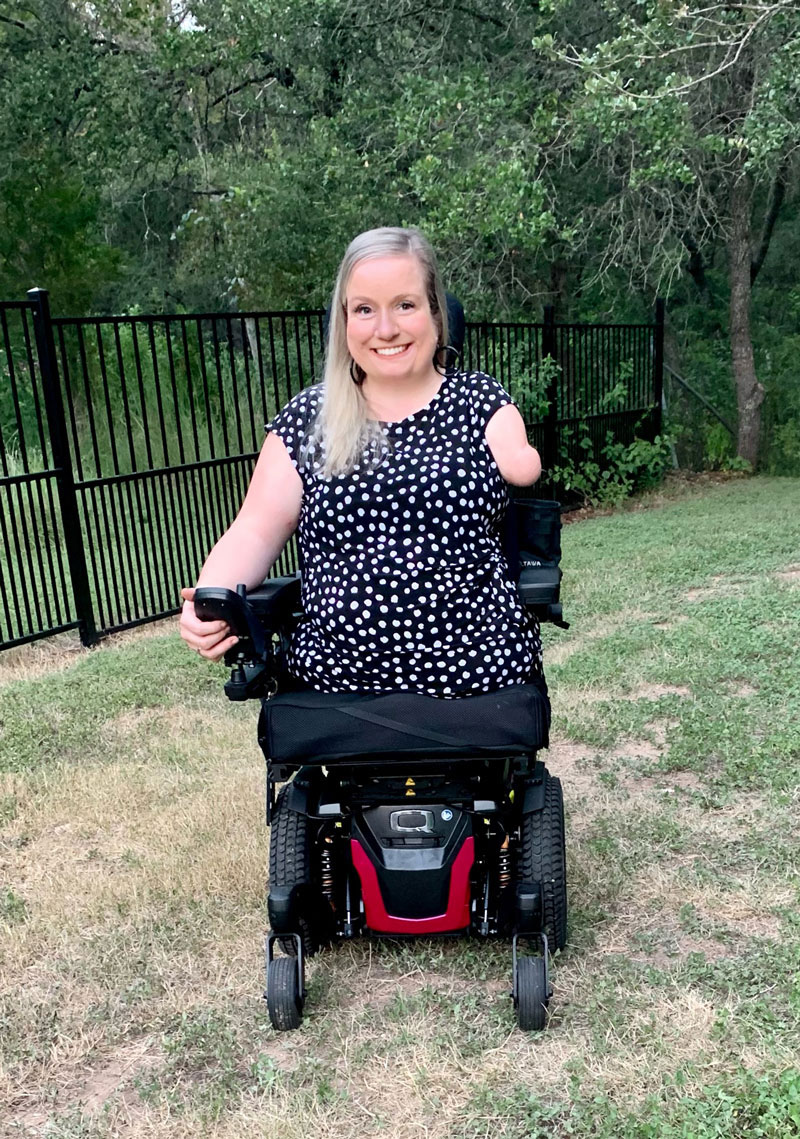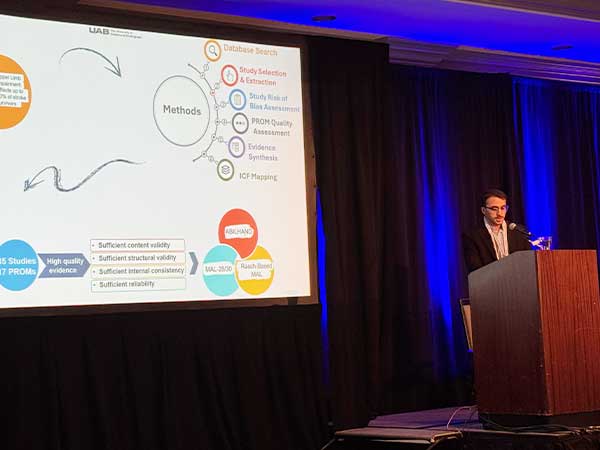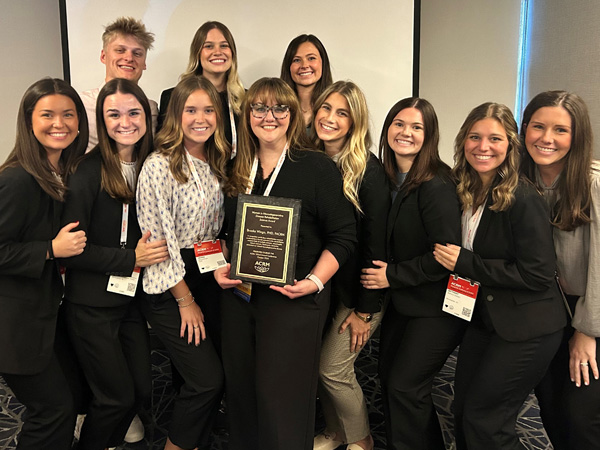 Dr. Erin AndrewsWhen we conflate disability and health status, our efforts to promote a healthy life for all are undermined.
Dr. Erin AndrewsWhen we conflate disability and health status, our efforts to promote a healthy life for all are undermined.
Dr. Erin Andrews’ seminar titled “Recognizing Ableism in Health Care Delivery and Developing Anti-Ableist Practices” was held on Friday, August 19. Andrews is a board-certified rehabilitation psychologist, affiliate faculty member in the department of psychiatry and behavioral sciences at the University of Texas Dell Medical School and has been with the veteran’s health administration for the past 15 years.
“We see disability included in most professional definitions of diversity, but when we do see it included at all, it’s typically viewed through the medical model,” Andrews said. “So, we think about disability as being an individual problem rather than a diverse social, political and cultural experience.”
Andrews’ clinical and research interests include disability identity and cultural competence, disability inclusion in psychology training, sexual and reproductive rights for people with disabilities, disabled parenting and reducing bias in disability language. Her book Disability as Diversity: Developing Cultural Competence goes beyond medical models to explore these concepts.
In her discussion, Andrews framed disability as a health disparity, or difference in health outcomes that results from historical disadvantages. Many social determinants of health for people with disabilities are much poorer than the population at large, including lower income, housing and transportation problems and social isolation.
“Ableism is often times perpetuated by some harmful attitudes toward patients with disabilities, and then that in turn contributes to discriminatory behavior and these adverse health outcomes that we see,” Andrews said.
These bias attitudes are reflected in a study in which only 18% of emergency care providers said they would be glad to be alive with a severe spinal cord injury, whereas 92% of people with a spinal cord injury reported as glad to be alive.
In another study, 82% of physicians said people with disabilities have a worse quality of life than non-disabled peers – just a blanket assumption, Andrews said. Just 40% of physicians felt confident to provide the same quality of care, and only 56% strongly agreed they welcome a person with a disability into their practices.
“Yet we rarely see attitudes or knowledge issues really addressed in medical or rehabilitation settings.”
The difficult part about addressing ableism, Andrews said, is that it’s typically subtle. She drew a distinction between explicit bias, freely stated attitudes, and implicit bias, unconscious negative attitudes.
According to the results of Harvard’s implicit association test, the negative bias against people with a disability are among the highest of any group. Interestingly, family members of someone with a disability have a lower explicit bias but carry the same implicit bias as the rest of the population.
“This is where it gets interesting. As our education level increases, our explicit bias decreases, but implicit bias actually increases. So, we’re less outwardly prejudiced, but inside, our prejudice level actually goes up.”
Andrews said this group is referred to as aversive ableist in the literature. Roughly two-thirds of medical providers fall into this category.
Andrews developed the “catastrophized sensationalized continuum” to explain the attitudes that affect people with disabilities. On one side of the continuum are inferior attitudes, such as pity and incompetence. On the right side are hero stereotypes, like courageous and inspirational. Both positive and negative stereotypes have negative affects by diminishing individuality and dehumanizing those with disabilities.
“These have the dual function of making the nondisabled feel better about themselves, while simultaneously holding the average disabled person to an impossibly high standard,” Andrews said when citing disability activist Stella Young.

